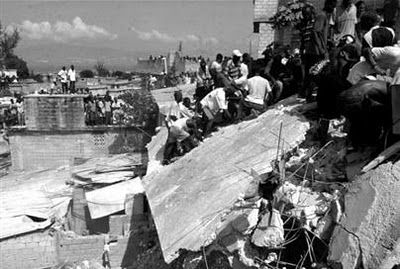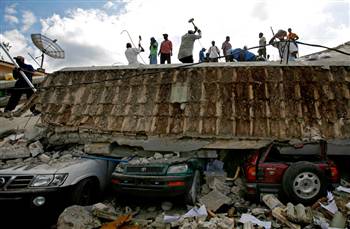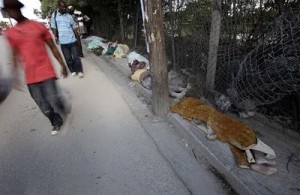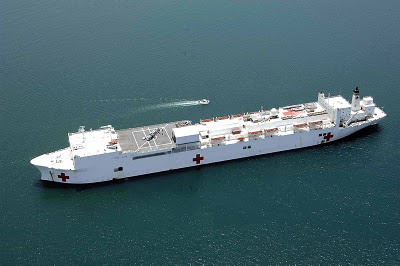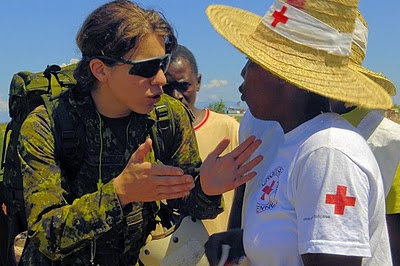On the Front Lines of Haiti's Recovery
The earthquake that struck Port-au-Prince, Haiti measured 7.0 on the Richter scale. The devastation is of Biblical proportions; witnesses have reported that thousands of bodies litter the streets of the destroyed city. According to reports, every two-story building was flattened and the National Palace collapsed.
Telephone networks are disrupted throughout Haiti, even cellphones; with widespread power outages, once cellphone batteries die, there is no way of recharging them.
It is anticipated that the number of dead from this natural disaster is rising into the thousands. Emergency teams from the United Nations began arriving on Wednesday to assess the situation. The footprint of aid agencies - both governmental and NGO's - will be huge.
While Haiti awaits disaster relief efforts from other countries, I have already received my phone call; am I available for security work, and other follow-on services as the situation requires? The pay is the same as any of their overseas work. Unfortunately (or fortunately, depending how you look at it) I am otherwise engaged.
The kind of people who take the overseas contracts - men and women with military skills - are extremely useful in situations like this. Not only can we pull security, we know how to carve civilization out of the wasteland. Military people know how to establish a perimeter, organize work gangs, get the water points going and get potable water to the people, run supply trains, build tent cities, secure fuel storage facilities and get the generators running, establish a field hospital - several field hospitals, distribute food, medicine, blankets, process displaced persons, widows, orphans, refugees; we have construction skills, mechanical skills, medical skills, electronic communications skills, we speak multiple languages . . . oh, and we can provide SECURITY while we're doing it.
The military will be there also, of course. But my critics take note; of the all humanitarian operations missions described in the paragraph above, NONE OF THEM are the reason or purpose the military exists. The military is used in these natural disasters for obvious reasons; no other single organization exists that has the vast resources of the military - hospital ships, carriers and their hosts of aircraft, logistical equipment & supplies organic to the military units, the uniquely skilled servicemen & women; and the military has the ability to deploy these assets to the other side of the planet at the drop of a hat.
Furthermore, military organizations possess an inherent ability to team up with and join in common cause with civilian agencies, non-governmental organizations, other nation's militaries, even irregular military formations (guerrilla or 'warlord' private armies). This is because of the leadership theme that pervades the military, and dedication to mission accomplishment.
But given a natural disaster of such epic proportions; no single organization, not even the military, can handle the humanitarian task at hand and at the same time maintain order and public safety. Private security contractors were in Houston and Galveston after Hurricane Ike in September of 2008, in New Orleans after Hurricane Katrina, 2005; and throughout Southeast Asia after the Great Asian Tsunami of December 26, 2004.
Private security contractors will be present in Haiti, assisting the civilian agencies and NGO's distribute emergency supplies while at the same time providing essential security services. This private security role will increase as the conventional military is withdrawn to return to the primary military mission; to maneuver, close with and destroy enemy forces.
Originally posted at STORMBRINGER.
